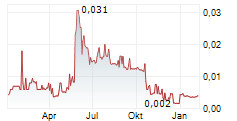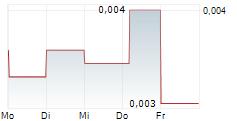Lund, May 21, 2025 - Active Biotech (NASDAQ STOCKHOLM: ACTI) today announced that the European Patent Office (EPO) has granted the patent application 21749566.2 related to tasquinimod in myelofibrosis, a rare form of blood cancer.
"We are very pleased that this significant patent has been granted by the EPO. It is an important step in the development program for tasquinimod in hematological malignancies, with a primary focus on myelofibrosis," said Active Biotech's CEO Helén Tuvesson.
The patent, with the European patent number, 4185292 provides protection and market exclusivity in strategic European markets through 2041 for the use of tasquinimod in treatment of myeloproliferative neoplasms (MPN) i.e. myelofibrosis. The patent, issued in the name of Erasmus University Medical Center (Erasmus MC), Rotterdam was licensed exclusively to Active Biotech from Oncode Institute, acting on behalf of Erasmus MC, in 2022.
For further information, please contact:
Helén Tuvesson, CEO, +46 46 19 21 56, helen.tuvesson@activebiotech.com
Hans Kolam, CFO, +46 46 19 20 44, hans.kolam@activebiotech.com
About Active Biotech
Active Biotech AB (publ) (NASDAQ Stockholm: ACTI) is a biotechnology company that develops first-in-class immunomodulatory treatments for oncology and immunology indications with a high unmet medical need and significant commercial potential. Active Biotech currently holds three projects in its portfolio, of which tasquinimod and laquinimod are wholly owned small molecule immunomodulators with a mode of action that includes modulation of myeloid immune cell function. The projects are in clinical development for hematological malignancies and inflammatory eye disorders, respectively. The company's core focus is on the development of tasquinimod in myelofibrosis, a rare blood cancer, where clinical proof-of-concept studies has been initiated. A clinical Phase Ib/IIa study in multiple myeloma is being concluded. Laquinimod is in clinical development for the treatment of non-infectious uveitis. A clinical phase I program with a topical ophthalmic formulation has been performed to support phase II development together with a partner. The third pipeline project is naptumomab, a targeted anti-cancer immunotherapy, partnered to NeoTX Therapeutics, which is in a phase Ib/II clinical program in patients with advanced solid tumors. Please visit www.activebiotech.com for more information.
About tasquinimod
Tasquinimod is an orally active small molecule immunomodulator with a novel mode of action, blocking tumor supporting pathways in the bone marrow microenvironment. Tasquinimod is being developed as a new immunomodulatory treatment for hematological malignances. Tasquinimod has previously been studied as an anti-cancer agent in patients with solid cancers, including a phase III randomized trial in patients with metastatic prostate cancer. The tolerability of tasquinimod is well-characterized based on these previous experiences. Tasquinimod has demonstrated a clear therapeutic potential in preclinical models of multiple myeloma, when used as a single agent and in combination with standard multiple myeloma therapy. A clinical Phase Ib/IIa study is ongoing with tasquinimod in relapsed and refractory multiple myeloma. Tasquinimod ameliorates disease development in preclinical models for myelofibrosis. In February 2022 Active Biotech entered into an exclusive patent license agreement with Oncode Institute, a foundation acting on behalf of Erasmus Universiteit Medisch Centrum (Erasmus MC) to develop and commercialize tasquinimod in myelofibrosis.
About myelofibrosis
Myelofibrosis (MF) is a rare blood cancer belonging to a group of disorders called myeloproliferative neoplasms. The underlying cause of MF is unknown. The estimated annual incidence of MF is approximately 1.5 cases per 100,000 people in EU, US, UK, and Japan. Patients with MF have an abnormal production of blood-forming cells leading to the replacement of healthy bone marrow with scar tissue (fibrosis). Due to the lack of normal blood cell production patients typically present with laboratory value abnormalities such as anemia and changes in white blood cell counts and blood cell-differentiation. Later symptoms include enlargement of the spleen, an increased risk for infections, night sweats and fever. MF is associated with shortened survival and causes of death include bone marrow failure and transformation into acute leukemia. MF can be treated with bone marrow transplantation for eligible individuals, erythropoietin to manage anemia and JAK inhibitors to reduce spleen size. At present there are no approved therapies that would reverse bone marrow fibrosis in MF.


